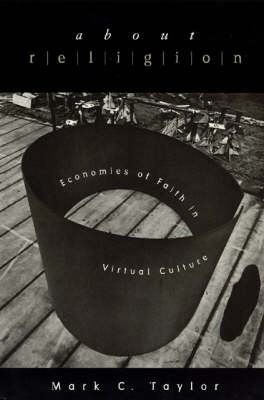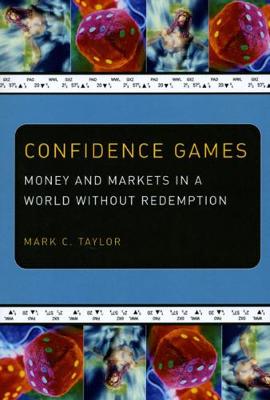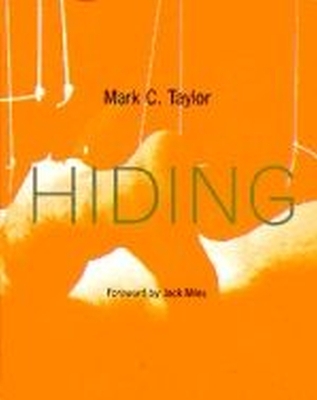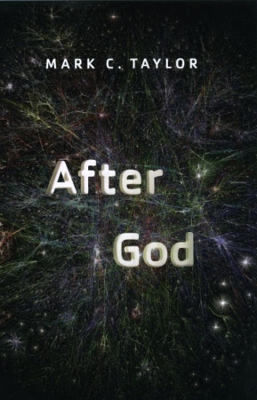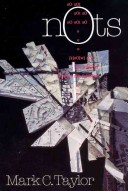Religion and Postmodernism Series (CHUP)
5 total works
Travelling from high culture to pop culture and back again, this book approaches cyberspace and Las Vegas through Hegel and Kant and reads Melville's "The Confidence-Man" through the film "Wall Street". As juxtapositions and associations proliferate, formerly uncharted territories of virtual culture disclose theological vestiges, showing that faith in contemporary culture is as unavoidable as it is elusive.
In "Confidence Games", Mark C. Taylor posits that money and markets do not exist in a vacuum but grow in a profoundly cultural medium, reflecting and in turn shaping their world. Bringing John Calvin, Hegel, and Adam Smith to Wall Street by way of Las Vegas, Taylor first explores the historical and psychological origins of money, the importance of religious beliefs and practices for the emergence of markets, and the unexpected role of religion and art in the classical understanding of economics. He then moves to an account of economic developments during the past four decades, exploring the dawn of our new information age, the growing virtuality of money and markets, and the complexity of the networks by which monetary value is now negotiated. Returning full circle to a version of the market first proposed by Adam Smith, "Confidence Games" closes with a plea for a conception of life that embraces uncertainty and insecurity as signs of the openness and possibility of the future.
The age of information, media and virtuality is transforming many aspects of human experience. This is an investigation of the postmodern world which critically examines a wide range of contemporary cultural practices. The postmodern world, Taylor argues, is a world of surfaces, and the postmodern condition is one of "profound superficiality". For many cultural commentators, postmodernism superficiality is a cause for despair. This book, however, shows that the disappearance of depth in postmodern culture is actually a liberation replete with creative possibilities. It examines fashion advertising, and the contemporary preoccupation with body piercing and tattooing, asking whether these practices reveal or conceal. Phrenology and skin diseases, the "religious" architecture of Las Vegas, and the limitless spread of computer networks are all covered in the scope of this study. It attempts to show that postmodernism has provided a new sense of the superficial, one in which the issue is not the absence of meaning, but its uncontrollable, ecstatic proliferation.
Religion, Mark C. Taylor argues in "After God", is more complicated than either its defenders or critics think and, indeed, is much more influential than any of us realize. Our world, Taylor maintains, is shaped by religion even when it is least obvious. Faith and value, he insists, are unavoidable and inextricably interrelated for believers and nonbelievers alike. The first comprehensive theology of culture since the pioneering work of Paul Tillich, "After God" redefines religion for our contemporary age. This volume is a radical reconceptualization of religion and Taylor's most path breaking work yet, bringing together various strands of theological argument and cultural analysis four decades in the making.
Nots is a virtuoso exploration of negation and negativity in theology, philosophy, art, architecture, postmodern culture, and medicine. In nine essays that range from nihility in Buddhism to the embodiment of negativity in disease, Mark C. Taylor looks at the surprising ways in which contrasting concepts of negativity intersect. In the first section of this book, Taylor discusses the question of the "not" in the religious thought of Anselm, Hegel, Derrida, and Nishitani. In the second part, he analyzes artistic efforts "to figure not" in the work of artists Arakawa and Madeline Gins, architect Daniel Libeskind, pop artist David Sallee, and pop icon Madonna. The final section consists of a deeply personal and scientifically informed chapter that discusses the workings of negativity in immunology and illness. Taylor's essays work toward a sense of the not as unnameable as it is irrepressible--an "unthinkable third" that falls between being and nonbeing.
Bringing together concerns that span Taylor's early investigations of Hegel and Kierkegaard and recent studies of art and architecture, Nots is an important contribution by one of the most original and distinctive voices now writing on the American scene. Religion and Postmodernism series
Bringing together concerns that span Taylor's early investigations of Hegel and Kierkegaard and recent studies of art and architecture, Nots is an important contribution by one of the most original and distinctive voices now writing on the American scene. Religion and Postmodernism series
